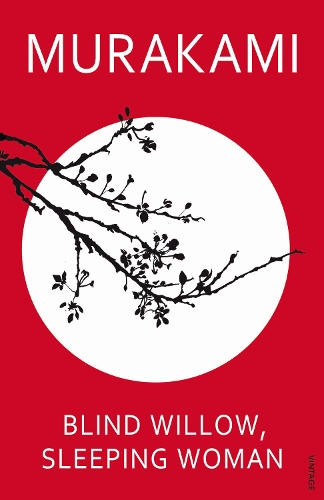
Blind Willow, Sleeping Woman
(Paperback)
Publishing Details
Blind Willow, Sleeping Woman
By (Author) Haruki Murakami
Vintage Publishing
Vintage
2nd July 2007
5th July 2007
United Kingdom
Classifications
General
Fiction
Fiction in translation
Modern and contemporary fiction: general and literary
Narrative theme: Death, grief, loss
Narrative theme: Love and relationships
Magical realism
895.635
Winner of Frank O'Connor International Short Story Award 2006
Physical Properties
Paperback
448
Width 128mm, Height 196mm, Spine 40mm
320g
Description
An eclectic, eccentiric and altogether brain-bending collection of short stories An eclectic, eccentric and altogether brain-bending collection of short stories. Here are animated crows, a criminal monkey, an ice man, as well as the dreams that shape us and the things we wish for. Whether during a chance reunion in Italy, a romantic exile in Greece, a holiday in Hawaii or in the grip of everyday life, Murakami's characters confront loss, or sexuality, or the glow of a firefly, or the impossible distance between those who ought to be closest of all. 'An intimate pleasure' The Times
Reviews
More insights into life, death, memories, love and kangaroos that one has a right to expect in any single volume * Daily Express *
An intimate pleasure * The Times *
Literature's answer to David Lynch * Times Literary Supplement *
These stories are rich in Murakami magic... a collection that all readers will enjoy * Independent *
Sharp but humane observation...as unforgettable as it is untypical * New Statesman *
Author Bio
In 1978, Haruki Murakami was 29 and running a jazz bar in downtown Tokyo. One April day, the impulse to write a novel came to him suddenly while watching a baseball game. That first novel, Hear the Wind Sing, won a new writers' award and was published the following year. More followed, including A Wild Sheep Chase and Hard-Boiled Wonderland and the End of the World, but it was Norwegian Wood, published in 1987, which turned Murakami from a writer into a phenomenon. His books became bestsellers, were translated into many languages, including English, and the door was thrown wide open to Murakami's unique and addictive fictional universe. Murakami writes with admirable discipline, producing ten pages a day, after which he runs ten kilometres (he began long-distance running in 1982 and has participated in numerous marathons and races), works on translations, and then reads, listens to records and cooks. His passions colour his non-fiction output, from What I Talk About When I Talk About Running to Absolutely On Music, and they also seep into his novels and short stories, providing quotidian moments in his otherwise freewheeling flights of imaginative inquiry. In works such as The Wind-Up Bird Chronicle, 1Q84 and Men Without Women, his distinctive blend of the mysterious and the everyday, of melancholy and humour, continues to enchant readers, ensuring Murakami's place as one of the world's most acclaimed and well-loved writers.
